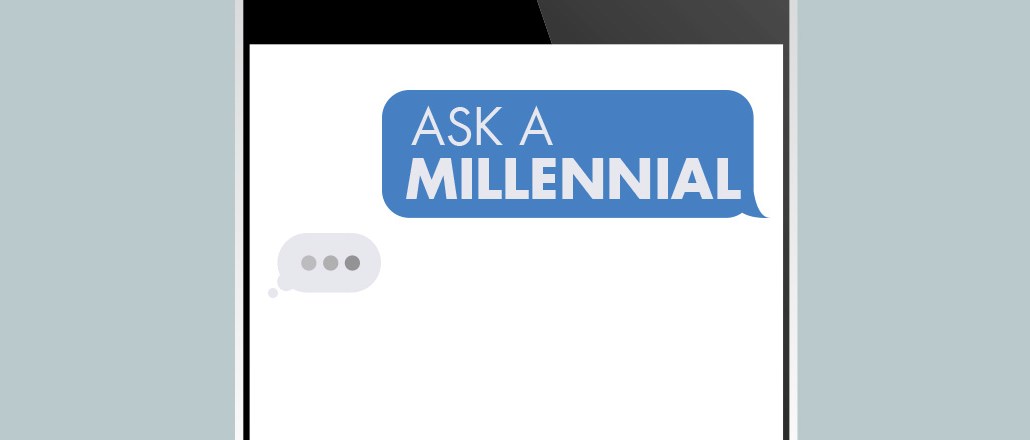Secure your place at the Digiday Publishing Summit in Vail, March 23-25
Ask a Millennial: Where do you (and your agency) stand on working from home?

Along with unlimited vacation and PowerPoint slides, perhaps no agency office culture issue is as hot button as working from home. Inside agencies, where people have been brought up in a “face time” culture, the idea of working from home may seem anathema to purists. But it’s certainly a trend — one agency, the Goodway Group, has no office at all, with 400 employees all working remotely from home.
So we asked our millennial focus group about work from home policies at their agencies, if they supported working from home and if they’ve noticed any pushback against it.
Male, strategy, 27
My agency discourages it. I’m completely on board. Creativity happens in the in-between moments. You only have those conversations, those jokes, those revelations when you’re together. Sometimes it happens when you’re up getting a coffee. Other times it’s walking back from the bathroom. Often it’s when you hang around a meeting room table a few minutes after the call ends. But this is where the magic really happens. Sure, some people might be able to get all of their work done from their couch. But that doesn’t mean that they should. Because it can always be made better. And that can only happen with others.
Male, production, 27
I love work from home. Nobody can tell what I’m billing. Plus my office loves it too: They get to save on desk space.
Male, accounts, 27
I’m not even sure we have an official agencywide work-from-home policy. For our team, a lot of people live in the surrounding areas — most are in Jersey. So as a team, members liberally work from home, and no one bats an eye. It helps that most people on this account are senior, so everyone is confident all work will be completed regardless of where a person is working, but I’ve seen people work from home for a week at a time for various reasons. Personally, I’ve only done the work from home a few times in the five months I’ve been here, but I’m not expected to “request” to work from home. I just send an email letting everyone know the plan and proceed from there.
Female, strategy, 29
During big storms or holidays when it does come up, leadership always sends out an email reinforcing that people are still expected to work. Outside of that, it seems to be more based on your supervisor, but the only people who consistently work from home are pretty senior. I’m not sure if they feel backlash, but I would say they aren’t the types of people who are integral to company culture.
Male, creative, 30
[Laughs] People these days can’t even leave for lunch. Everyone has become less lenient about working from home. In general, I think it speaks to the growing pressure inside agencies. We’re all being asked to do a lot more. Part of that is showing up to work. You can’t hide over at home “working on a big project” any more but actually be sitting around lounging in your pajamas while thinking. Especially for creatives. It’s come as a bit of a culture shock for some of the older guys who grew up at a different time. They’re still wrapping their heads around not being able to do whatever the fuck they want.
Female, 32, communications
At my last agency, working from home was majorly frowned upon, like you’re not being a team player. There’s still the perception that people are sitting at home catching up on Netflix instead of working. I think that approach is completely tone deaf. Employees are expected to be on-call all the time. That means early in the morning and well after the work day is technically over. People are working at home then, so why not give them the freedom to have some flexibility during the day? Some of my best productivity happens in unconventional work environments, like from an airplane. WiFi is spotty, so you have a chance to breathe in between emails. You also have time to yourself to think. I’m a mom, so working from home is close to impossible with a kid in the house. But I used to get so much more work done from home because I didn’t have people coming into my office all day long.
More in Marketing

As it ramps up push to fund AI bets, Meta makes a new play for agencies
Even in the age of Advantage+, Meta needs agencies.

Zero-click reality is rewriting the rules of search for brands
Search performance concerns have reached brand boardrooms. Both organic and paid search practitioners are scrambling to find effective responses to the questions posed by AI developments.

Walmart Connect’s full-funnel ambitions come into focus, with Amazon in its sights
Walmart Connect is scaling quickly, with AI investments and the Vizio acquisition shaping its push to rival Amazon’s ad business.








